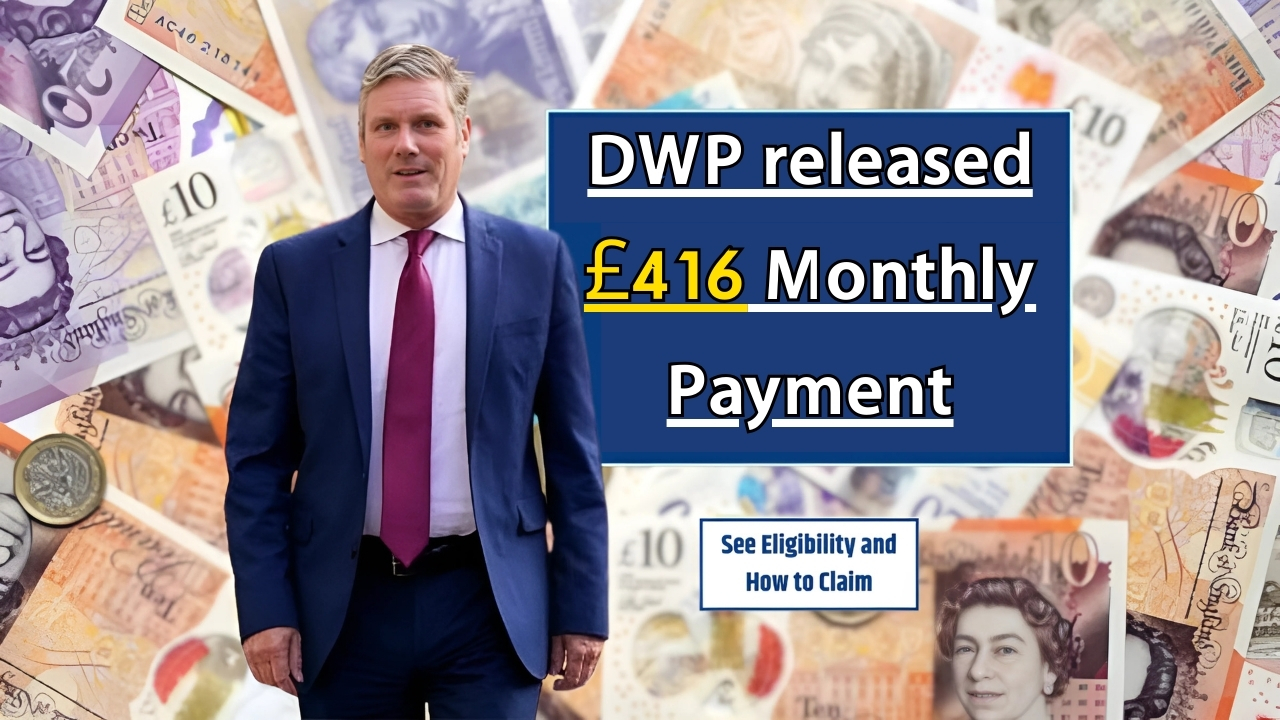Monthly Payment : The Department for Work and Pensions revealed details about monthly payments worth £416 that eligible British residents can now access through reformed benefit programmes. This significant financial support represents combined assistance available through Universal Credit and related schemes, with thousands of households potentially qualifying for these enhanced payment structures starting immediately.
Government officials confirmed that the £416 figure reflects maximum standard allowances for certain claimant categories, particularly couples over 25 navigating current economic pressures. The announcement comes amid rising living costs affecting households nationwide, prompting expanded support measures designed to help families manage essential expenses. Ministers stressed that simplified application procedures should enable faster access to these vital funds.
Understanding Your Payment Entitlement
The £416 monthly sum specifically applies to joint Universal Credit claims for couples aged 25 and above, representing their core entitlement before additional elements. Single individuals over 25 receive £334.91 as their standard amount, while younger claimants under 25 get £265.31 monthly. These foundational payments often combine with supplementary support for housing, childcare, and health-related needs.
Many recipients qualify for substantially higher total payments when factoring in additional components. Rent support through housing elements varies by area, with metropolitan regions commanding higher allowances. Families with children see payments increase by £287.92 for eldest children and £237.08 for each additional child. Disability premiums range from £156.11 to £487.58 depending on assessed needs and care requirements.

Working households may retain more earnings through work allowances before benefit reductions apply. Single parents and disabled workers keep initial earnings without affecting benefits, encouraging employment while maintaining financial stability.
Who Qualifies for These Payments
Eligibility extends to British residents experiencing various challenging circumstances including unemployment, reduced working hours, health conditions, or caring responsibilities. Applicants must demonstrate limited savings below £16,000, with graduated reductions for capital between £6,000 and the upper threshold. Most working-age adults meeting income criteria can apply, though students face restrictions unless specific exceptions apply.
Health assessments determine additional support for those with medical conditions affecting work capacity. Individuals unable to work due to illness or disability receive £354.28 extra monthly. Those with severe limitations preventing work preparation qualify for £416.19 supplementary payments above standard rates. Carers looking after severely disabled individuals may claim Carer’s Allowance alongside Universal Credit.
Age considerations affect eligibility routes, with pension-age individuals directed toward Pension Credit rather than Universal Credit. Mixed-age couples navigate complex rules determining appropriate benefit systems based on youngest partner ages.
How to Submit Your Application
Claims must originate through the official government website, though alternative support exists for digitally excluded individuals. Creating an online Universal Credit account initiates the process, requiring email addresses and mobile numbers for security verification. Identity confirmation uses various methods including banking history checks or document uploads.
Preparation speeds up applications considerably. Gather bank statements showing recent transactions, rental agreements or mortgage details, payslips from past two months, and childcare receipts before beginning. Self-employed applicants need profit and loss information readily available. Medical evidence supporting health conditions strengthens disability element claims.
The standard waiting period spans five weeks from application to first payment, though advance payments offer immediate relief for urgent situations. These advances equal expected monthly amounts, repaid gradually through future payment deductions across twelve months without interest charges.
2026 COLA scheduled by US Government – Check new upcoming payments
Monthly Payment Maintaining Your Benefit Claim
Successful claimants must fulfill ongoing requirements maintaining payment eligibility. Monthly journal entries document job search activities for those expected to seek employment. Reporting changes promptly prevents overpayments requiring later recovery. Income fluctuations, moving house, relationship status changes, or health improvements need immediate declaration through online accounts.
Work coaches provide personalized support helping claimants progress toward employment goals. Regular appointments discuss opportunities, training options, and barrier removal strategies. Missing scheduled meetings without valid reasons triggers sanctions temporarily reducing payments. Understanding commitment requirements prevents unnecessary payment interruptions affecting household budgets during already difficult periods.